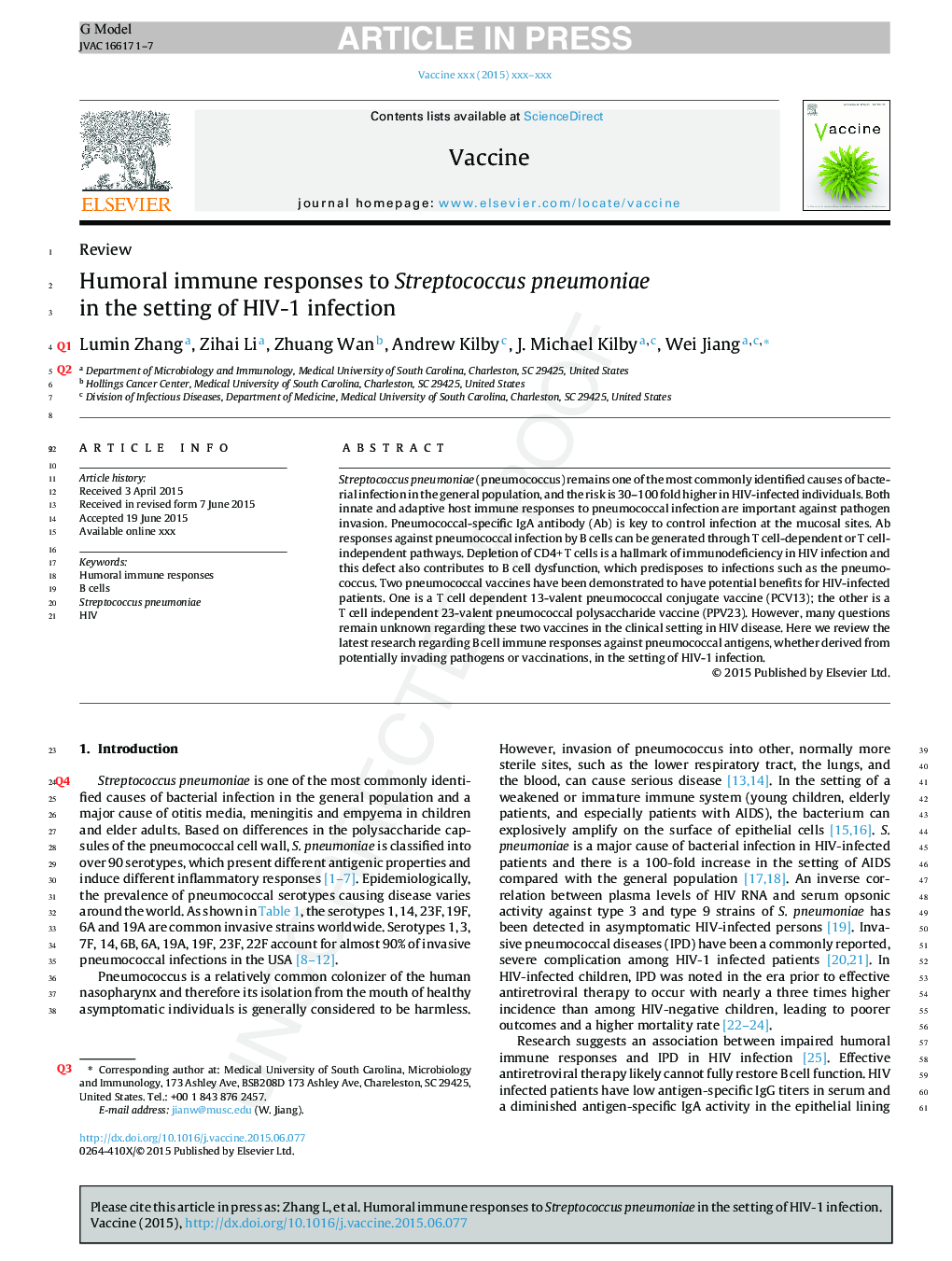| کد مقاله | کد نشریه | سال انتشار | مقاله انگلیسی | نسخه تمام متن |
|---|---|---|---|---|
| 10963773 | 1102693 | 2015 | 7 صفحه PDF | دانلود رایگان |
عنوان انگلیسی مقاله ISI
Humoral immune responses to Streptococcus pneumoniae in the setting of HIV-1 infection
دانلود مقاله + سفارش ترجمه
دانلود مقاله ISI انگلیسی
رایگان برای ایرانیان
کلمات کلیدی
موضوعات مرتبط
علوم زیستی و بیوفناوری
ایمنی شناسی و میکروب شناسی
ایمونولوژی
پیش نمایش صفحه اول مقاله

چکیده انگلیسی
Streptococcus pneumoniae (pneumococcus) remains one of the most commonly identified causes of bacterial infection in the general population, and the risk is 30-100 fold higher in HIV-infected individuals. Both innate and adaptive host immune responses to pneumococcal infection are important against pathogen invasion. Pneumococcal-specific IgA antibody (Ab) is key to control infection at the mucosal sites. Ab responses against pneumococcal infection by B cells can be generated through T cell-dependent or T cell-independent pathways. Depletion of CD4+ T cells is a hallmark of immunodeficiency in HIV infection and this defect also contributes to B cell dysfunction, which predisposes to infections such as the pneumococcus. Two pneumococcal vaccines have been demonstrated to have potential benefits for HIV-infected patients. One is a T cell dependent 13-valent pneumococcal conjugate vaccine (PCV13); the other is a T cell independent 23-valent pneumococcal polysaccharide vaccine (PPV23). However, many questions remain unknown regarding these two vaccines in the clinical setting in HIV disease. Here we review the latest research regarding B cell immune responses against pneumococcal antigens, whether derived from potentially invading pathogens or vaccinations, in the setting of HIV-1 infection.
ناشر
Database: Elsevier - ScienceDirect (ساینس دایرکت)
Journal: Vaccine - Volume 33, Issue 36, 26 August 2015, Pages 4430-4436
Journal: Vaccine - Volume 33, Issue 36, 26 August 2015, Pages 4430-4436
نویسندگان
Lumin Zhang, Zihai Li, Zhuang Wan, Andrew Kilby, J. Michael Kilby, Wei Jiang,